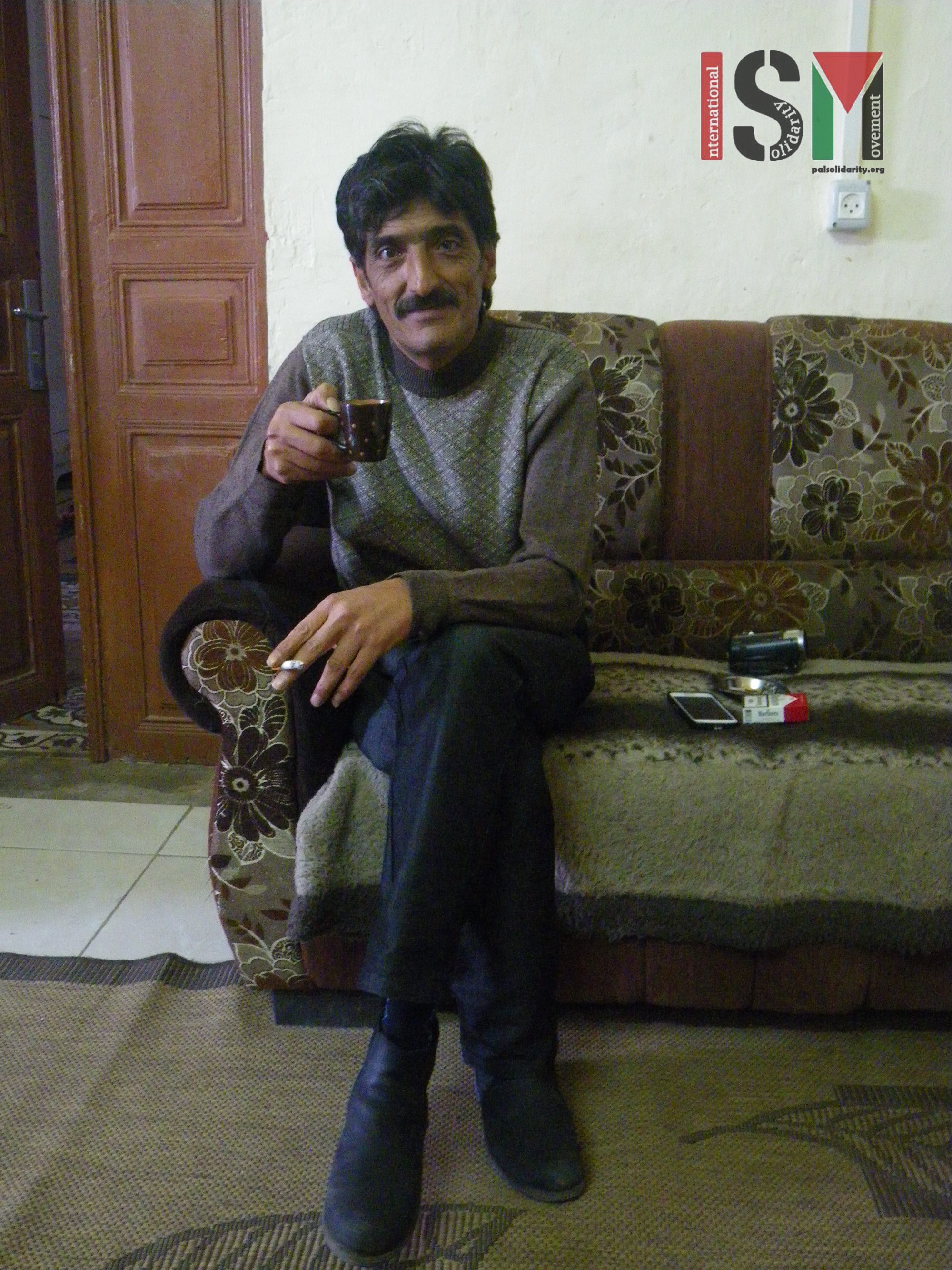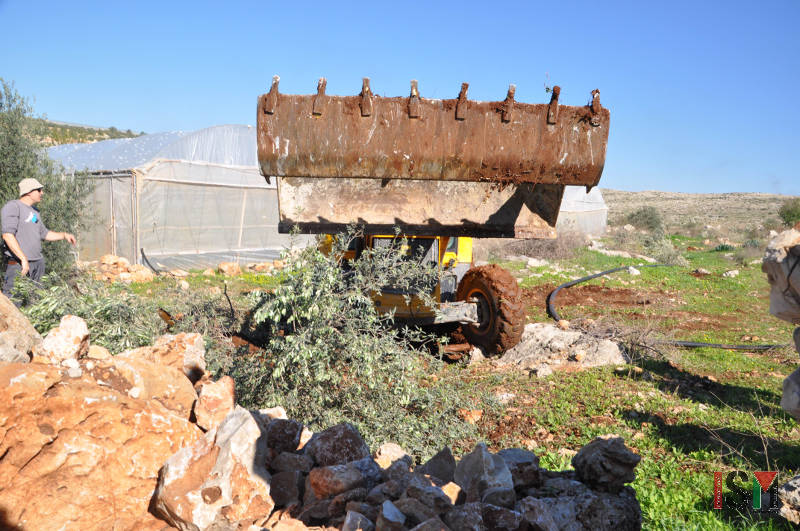Tag: illegal settler
-
Palestinian Family at Um Darit Harassed and Isolated
Acts of harassment and terror are a daily fact of life for residents of Masafer Yatta, a collection of rural hamlets at the southern end of the West Bank. One example is Mohammed Abed’s family in Um Darit, where they are surrounded by a rapidly expanding network of illegal settlements. After the Israeli escalation in…
-
A night of protective presence needed
3rd April 2016 | International Solidarity Movement, al-Khalil team | al-Khalil, occupied Palestine The two boys met us at the store, shouting the name of our Palestinian contact and waving us along. The cobbled stones in the alley made a nice contrast to the darkness of the night. My feet landed softly on the mud…
-
Israeli forces uproot trees and destroy greenhouses in Kafa district
8th of December 2015 | International Solidarity Movement, Tulkarm Team | Kafa district, occupied Palestine On Tuesday, Israeli forces entered the village of Kafa in the outskirts of occupied Tulkarm. Within a few hours, they uprooted over 150 olive trees, 30 lemon trees and demolished four greenhouses from the land of the Esmail family. Even…



